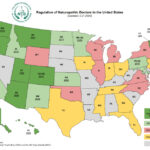When scheduling your annual health check, you might pause and wonder: is it a “doctor’s appointment” or a “doctor appointment”? If you’re like most English speakers, “doctor’s appointment” probably sounds more natural. While perfectly understandable, “doctor appointment” is less common. But why do we lean towards “doctor’s appointment”? The short answer is simply convention, but the grammatical reasons behind both phrases are more nuanced and fascinating. Let’s delve into the subtleties of language to understand why.
Understanding the ‘s: Possession and More
The apostrophe-s, or ‘s, is most frequently used in English to indicate possession, like in “the dog’s bone.” While we could say “the bone of the dog,” using ‘s is the standard and more concise way to show ownership.
However, ‘s has other roles beyond simple possession. Although debated by some, it can mark plurals, as in “mind your p’s and q’s.” It also serves as a contraction for “us” in “let’s” and for “is” in words like “it’s,” “she’s,” and “he’s.”
There’s another function of ‘s that, at first glance, might appear possessive but is actually different. Consider “the bird’s song.” The song isn’t owned by the bird in a possessive sense, but rather it originates from the bird. In “bird’s song,” the ‘s indicates what grammarians call the genitive case, specifically the genitive of origin.
Exploring the Genitive Case
The term “genitive case” might sound technical, but it’s a fundamental concept in grammar. A grammatical case defines the relationship between words in a sentence. The genitive case, broadly speaking, shows that something or someone is connected to, associated with, or originates from something or someone else. This connection can encompass possession, but it extends beyond mere ownership.
In modern English, the genitive case is often referred to as the possessive case, largely due to the influence of 18th-century grammarians. While understandable, this simplification can obscure the broader meaning of the genitive, which includes association and origin in addition to possession. For our discussion, “genitive case” is more helpful in understanding the relationship in phrases like “doctor’s appointment.”
Within the genitive case, we find categories like the “genitive of origin,” as seen in “the bird’s song.” Another relevant category is the “descriptive genitive.” Grammar experts Patricia T. O’Conner and Stewart Kellerman, on their Grammarphobia blog, use this term to analyze “doctor’s appointment.” They explain the distinction between “doctor’s appointment” and “doctor appointment” in this way:
In the phrase “doctor’s appointment,” the noun “doctor” is being used genitively to describe the type of appointment, while in “doctor appointment,” the noun is being used attributively (that is, adjectivally) to do the same thing.
The term “doctor’s” in the first example is often called a “descriptive genitive,” and “doctor” in the second an “attributive noun,” a “noun adjunct,” or a “noun premodifier.”
There aren’t any hard-and-fast rules for whether to use a noun genitively or attributively as a modifier before another noun. However, some usages are more idiomatic (that is, natural to a native speaker) than others.
Essentially, “doctor’s” in “doctor’s appointment” acts as a descriptive genitive, specifying the kind of appointment. Think of it like “a women’s college” – it’s a college for women, describing its nature. On the other hand, “doctor” in “doctor appointment” functions as an attributive noun, directly modifying “appointment” like an adjective. Similar examples of attributive nouns include “computer screen” or “book store.”
Both “doctor’s appointment” and “doctor appointment” are grammatically sound ways to express the concept. The preference for “doctor’s appointment,” which became more pronounced in the latter half of the 20th century, is largely a matter of linguistic convention. While both forms are correct, “doctor’s appointment” has simply become the more established and natural-sounding choice for native English speakers.

